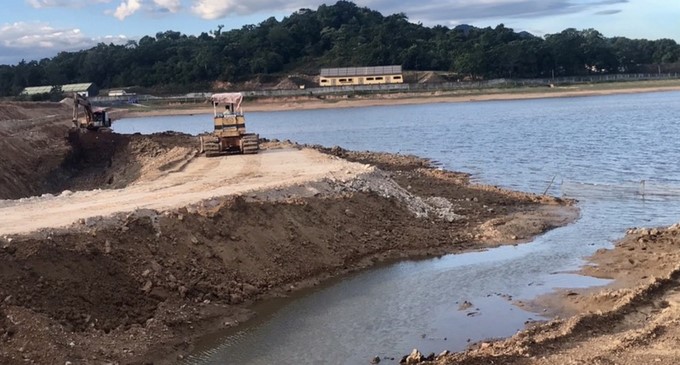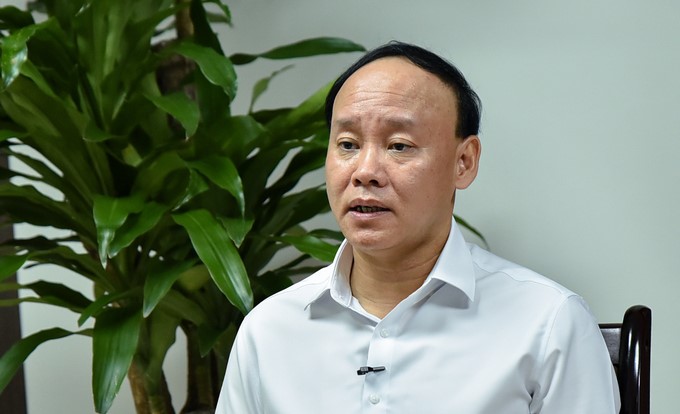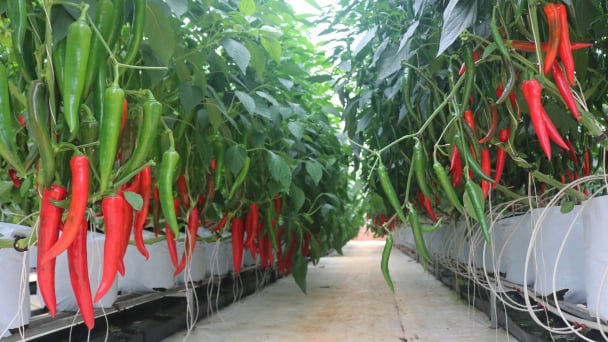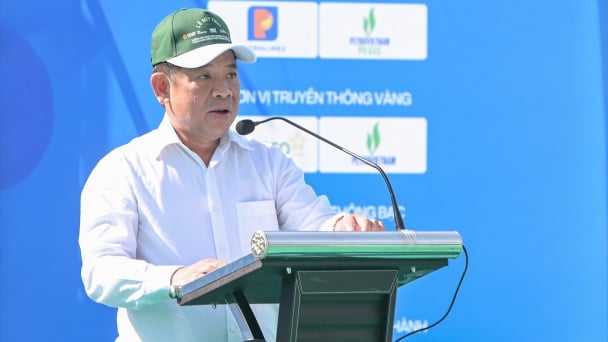June 2, 2025 | 20:04 GMT +7
June 2, 2025 | 20:04 GMT +7
Hotline: 0913.378.918
June 2, 2025 | 20:04 GMT +7
Hotline: 0913.378.918
Currently, the whole country has built 7,342 irrigation dams and reservoirs, including 592 water-raising dams with a height of over 5m and 6,750 reservoirs with a total length of approximately 1,200km. The total storage capacity is about 14.5 billion m3, creating a source of irrigation water for nearly 1.1 million hectares of agricultural land and supplying about 1.5 billion m3 of domestic and industrial water.

Tens of trillions of dongs are needed to repair and upgrade damaged and degraded reservoirs.
According to the assessment of the Department of Water Resources under the Ministry of Agriculture and Rural Development (MARD), some tasks are performed quite well by the dam owners. To be more specific, 100% of reservoirs are inspected according to regulations; 90% of reservoirs have water with approved operating procedures; 86% of reservoirs are registered for dam safety; and 77% of reservoirs have prepared disaster response plans.
However, only 31% of reservoirs have a protection plan. 28% have a response plan to urgent situations; 18% have an operating procedure; and 13% are inspected for safety. 12% of reservoirs are equipped with safety warning and communication equipment for dams and downstream areas; 11% of reservoirs have set up protective landmarks.
The installation of operation monitoring equipment in reservoirs with water gates has well supported the work of advising and directing the operation according to actual developments. Typically, in the rainy season in 2022, Ta Trach reservoir, which is properly operated, has reduced the water level at Kim Long by a maximum of 0.36m, contributing to reducing flooding for Hue city and the delta region.
Mr. Nguyen Tung Phong, Director of the Department of Water Resources, said that in general, the allocation of funds and the implementation of legal regulations on dam safety management in most localities are still very limited. MARD issued Circular No. 03/2022/TT-BNNPTNT dated June 16, 2022, to amend and supplement a number of articles of MARD’s Circular No. 05/2018/TT-BNNPNT dated May 15, 2018. This circular will detail a number of articles of the Law on Irrigation. Accordingly, decentralize localities to manage irrigation dams and reservoirs, where exploitation and protection involve two or more provinces.

Mr. Nguyen Tung Phong, Director of the Department of Water Resources, talked with the Vietnam Agriculture Newspaper. Photo: MP.
In the past time, thanks to the attention and investment of the Government as well as the efforts of localities, most of the large reservoirs with a capacity of 3 million m3 or more have been repaired to ensure safety. Since 2003, about 1,500 reservoirs have been repaired at a total budget of about VND 30,000 billion. Of which, in the period of 2019–2021, the Government has supported 30 provinces with a funding of VND 500 billion to repair and upgrade 84 reservoirs; the WB8 project has completed the repair and upgrade of 436 lakes; and the localities have invested in repairing and upgrading 80 reservoirs from other capital sources.
In the medium-term period of 2021–2025, the Ministry of Agriculture and Rural Development has supported the repair and upgrade of 31 irrigation dam and irrigation reservoir structures with a total budget of VND 4,700 billion. Within the framework of the Socio-Economic Development and Recovery Program, 68 reservoirs have been repaired and upgraded at a total budget of VND 1,000 billion.
According to reports of localities and the inspection and review of the Department of Water Resources, the whole country has 337 remaining reservoirs that are badly damaged. Currently, according to socio-economic development, the downstream area is gradually forming urban areas and cities, resulting in the narrowing of the flood drainage corridors of irrigation reservoirs. The discharge of reservoirs, if discharged according to design, will cause flooding in downstream areas.
The degraded and badly damaged reservoirs focus on a group of small and medium-sized lakes. These lakes were mostly built a long time ago, from the 1970s to the 1980s of the last century, under difficult economic conditions, limited technologies, and a lack of funds for maintenance, repair, and upgrade. The implementation of legal regulations on the safe management of these dams and reservoirs is still limited.
Translated by Huyen Vu Thu

(VAN) From the meeting in Ha Long, the United Nations called for the establishment of a legally binding global treaty to end plastic pollution.

(VAN) ‘Accounting trick’ to support methane-emitting sectors undermines fight against climate change, say researchers.

(VAN) Water conservation, transboundary cooperation and sustainable agriculture are key to securing the region’s future, says FAO Director-General QU Dongyu.

(VAN) Professor Dr. Mai Trong Nhuan believes that Lam Dong will serve as a 'supermarket' of green agricultural products for the entire country and a beautiful destination acting as a 'health charging station' for tourists.

(VAN) A delegation of nearly 50 Vietnamese agencies, agribusinesses, and agricultural associations has officially begun its working trip to the United States.

(VAN) Mr. Van Ngoc Thinh, CEO of WWF-Vietnam, warned that plastic waste is the starting point of a chain of ecological degradation and the decline of coastal livelihoods.

(VAN) Quang Ninh’s leaders have affirmed that the province was one of the first localities in the country to launch a province-wide campaign against plastic waste.